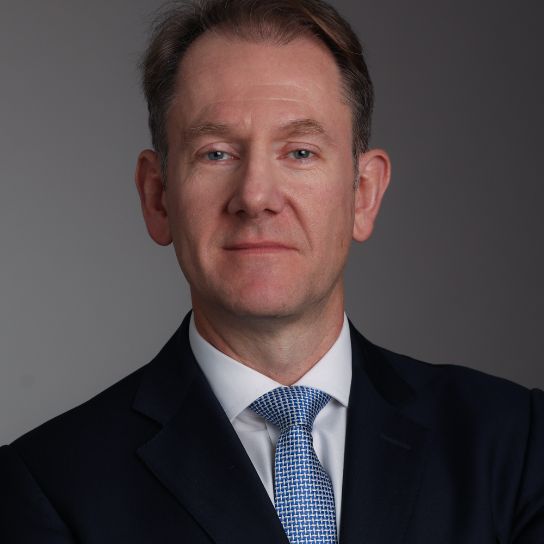Herbert Smith Freehills is pleased to announce the launch of The Global Pound Conference (GPC) Series 2016-17. The aim of this ambitious worldwide conference series is to engage all key stakeholders in a conversation about dispute resolution and how it should be used in commercial and civil conflicts in the 21st Century.
Over 25 countries worldwide have already committed to holding a GPC event, with more being added. The launch will take place at a two-day conference in Singapore on 17-18 March, 2016 and the last event is scheduled to be held in London in July 2017.
The Series, which is being led by the International Mediation Institute (IMI), is being sponsored by Herbert Smith Freehills as well as other global partners: Shell; AkzoNobel; the Beijing Arbitration Commission (BAC); JAMS; and the International Centre for Dispute Resolution (ICDR).
Who Will Attend the GPC events?
Major stakeholders in dispute resolution will attend the GPC Series including businesses, lawyers, academics, judges, arbitrators, mediators, policy makers, chambers of commerce, government officials and others. They will collaborate at each of the conferences around the world to discuss existing tools and techniques available in dispute resolution. They will also stimulate new ideas and generate actionable data on what users of dispute resolution actually need and want, both locally and globally.
How Will the GPC Gather Data?
The events will share a common technology platform to enable all participants to vote on standardised questions about the most effective ways to reshape the dispute resolution landscape.
What Will Be the Output of the GPC?
Like the original Pound Conference, held in the USA in 1976, the ambition of the GPC is to change the culture and methods of resolving conflicts. The GPC Series will culminate in a report at the end of 2017, which interprets the data gathered globally to help shape how dispute resolution will be conducted for years to come. The resulting data from all of the events will be publicly available to anyone wishing to research stakeholder views on dispute resolution.
How Can I Get Involved in the GPC?
Please visit the dedicated website, www.globalpoundconference.org for information about the GPC, the planned events and how to get involved.
Chief Global Litigation Counsel at GE Oil & Gas Michael McIlwrath, who is chairman the Central Organising Group for the GPC Series, commented: "The GPC is an opportunity for us to have a conversation about what dispute resolution should be today and for years to come. Our vision for the GPC is for the stakeholders to come together to define the way disputes ought to be resolved in the modern world."
Alexander Oddy, Partner and Head of Alternative Dispute Resolution (ADR) at Herbert Smith Freehills said: "The GPC Series is a really exciting and unique opportunity for all stakeholders in the dispute resolution community to shape the way we do things in the 21st Century. It is a chance to understand what corporates and other organisations really need, to share ideas and learning and develop new processes that are fit for purpose.
"What we have today is a relatively developed set of dispute resolution processes but we need to understand how we can use those more effectively in combination and in culturally sensitive ways in the future."
To participate in the Global Pound Conference Series, please visit the website: http://www.globalpoundconference.org/
Notes for Editors:
The COG’s Executive Committee is chaired by Michael McIlwrath, Chief Global Litigation Counsel at GE Oil & Gas, and includes independent lawyer and ADR neutral Jeremy Lack, Prof. Barney Jordaan, Herbert Smith Freehills Partner Alexander Oddy, and Daniel Rivlin CEO of the Conference Organiser Kenes Group.
The organisation of the GPC Series events is being conducted with input from global leaders in dispute resolution circles including: ACB Foundation Conflict Management Research Centre; American Arbitration Association/International Centre for Dispute Resolution (AAA/ICDR); American Bar Association, Section of Dispute Resolution (ABA); Association of International Business Lawyers (AIBL); Association of Mediation Assessors, Trainers and Instructors (AMATI); Beijing Arbitration Commission/ Beijing International Arbitration Centre (BAC/BIAC); Centre for Effective Dispute Resolution (CEDR); Chartered Institute of Arbitrators (CIArb); China International Economic and Trade Arbitration Commission (CIETAC); Commercial Mediation Group UK; Corporate Counsel International Arbitration Group (CCIAG); Groupement européen des magistrats pour la médiation (GEMME); Institution Quraysh; International Bar Association (IBA); International Chamber of Commerce (ICC); International Dispute Resolution Group (IDR); International Institute for Conflict Prevention and Resolution (CPR Institute); JAMS; Resolutions (LEADR & IAMA); Pakistan Mediators' Association (PMA); Round Table Mediation und Konfliktmanagement der deutschen Wirtschaft (RTMKM); Standing Conference of Mediation Advocates (SCMA); Straus Institute for Dispute Resolution, Pepperdine University School of Law; Singapore International Arbitration Centre (SIAC); Singapore International Mediation Institute (SIMI); Singapore Mediation Centre (SMC); Swiss Arbitration Association (ASA); Swiss Chambers’ Arbitration Institution (SCAI); Swiss Chamber of Commercial Mediation (SKWM/CSMC/SCCM); Union Internationale des Avocats (UIA); Vereniging Zakelijke Mediation (ZAM)and the World Intellectual Property Organization (WIPO).
History of the Pound Conference:
The seminal event that led to the birth of modern dispute resolution systems was the Pound Conference in St Paul, MN, USA in April 1976. Named in honour of Roscoe Pound, the reforming Dean of Harvard Law School in the 1920s and 30s, the theme of the original Pound Conference was: Agenda for 2000AD - The Need for Systematic Anticipation.
Professor Frank E.A. Sander of Harvard Law School proposed that alternative forms of dispute resolution should be used to reduce reliance on conventional litigation, and overcome reluctance to use other dispute resolution options. The 1976 Pound Conferences is credited with having sparked many changes in the US justice system in the decades that followed, including the creation of the “multi-door courthouse” to provide more procedural choices to disputants.
The Global Pound Conference Series aims to build a global conversation around developing dispute resolution techniques in the tradition of the original Pound Conference.

